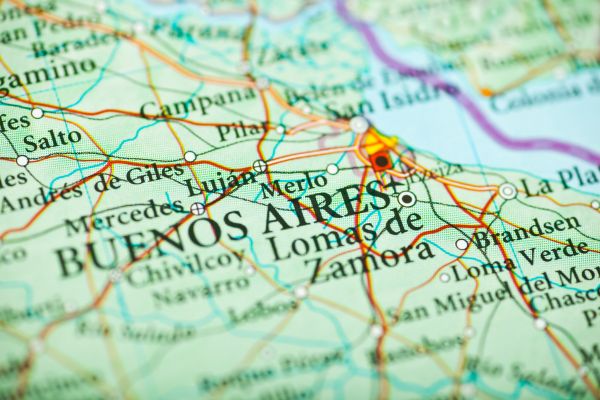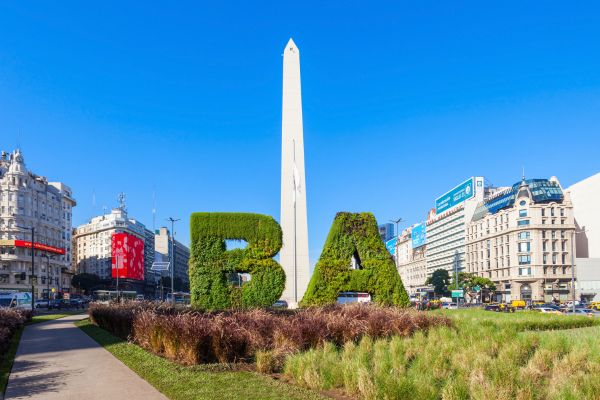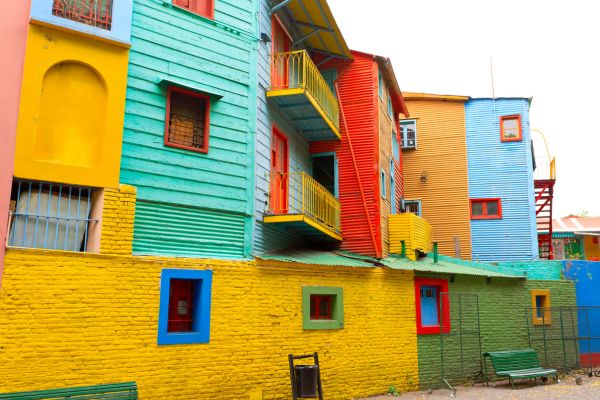What Does Buenos Aires Mean? Origin, History, and Significance

Buenos Aires, Argentina's vibrant capital, is known for its rich history, culture, and energy. From its bustling neighborhoods to its famous tango music, the city has a unique charm that captures the hearts of travelers. But have you ever wondered, what does Buenos Aires mean? Whether you're curious about its translation or its deeper significance, we’re here to explore this simple yet fascinating question.
What Does Buenos Aires Mean in English and Spanish?

Buenos Aires translates to "Good Airs" or "Fair Winds" in English, and the meaning is the same in Spanish. The word Buenos is the plural form of "bueno," meaning "good," while Aires refers to "airs" or "winds." This poetic phrase suggests favorable conditions or a welcoming environment, which perfectly suits a city known for its warm hospitality and vibrant lifestyle.
But beyond the literal translation, the name connects the city to its maritime history and the Virgin Mary of Bonaria. Sailors believed she brought them safe passage and favorable winds on their voyages, inspiring the city’s name as a tribute to her protection.
The Historical Origin of Buenos Aires’ Name

The city’s full original name was "Ciudad de Nuestra Señora Santa María del Buen Aire", or “City of Our Lady Saint Mary of the Fair Winds.” It was founded by Spanish explorer Pedro de Mendoza in 1536.
The name refers to the Virgin Mary of Bonaria, revered by sailors for protecting them on their voyages. The Spanish settlers believed she brought them favorable winds and safe passage during their long sea journeys, and they named the city in her honor as a tribute to her protection.
This historical naming not only reflects the religious devotion of the time but also the hope and optimism the settlers had for their new city.
Why the Name Buenos Aires Still Matters Today

Though centuries have passed since its founding, the meaning of Buenos Aires continues to resonate in the city’s atmosphere. Today, the “good airs” represent more than just fair weather; they symbolize the vibrant energy, warm culture, and the unique spirit of the people who live there.
Whether you’re exploring the colorful streets of La Boca or enjoying the world-class food scene in Palermo, Buenos Aires’ good vibes are palpable. It’s a city full of life and opportunity, much like the hope the early settlers felt when they named it.
Top Places to Feel the “Good Airs” of Buenos Aires

To truly understand what Buenos Aires means, you have to experience it for yourself. Here are some of the best places to feel the city’s unique energy:
- La Boca: Known for its vibrant, colorful buildings and street performers, La Boca is a lively neighborhood that embodies the creative and passionate spirit of Buenos Aires. Here, you’ll see tango dancers and artists showcasing their talents, bringing the “good airs” of the city to life.
- Palermo: This trendy district offers everything from lush parks to chic cafes. Palermo is a perfect place to relax, enjoy the outdoors, and breathe in the lively atmosphere of Buenos Aires. By day, you can enjoy the open spaces, and by night, the area turns into a hotspot for nightlife.
- San Telmo Market: One of the oldest neighborhoods in the city, San Telmo is famous for its Sunday market. With its cobbled streets and lively stalls selling everything from antiques to street food, this is where you can feel the authentic energy of Buenos Aires, the very “good airs” that define the city.
- Puerto Madero: For a more modern experience, Puerto Madero’s waterfront is perfect for a stroll or dining in one of the city's finest restaurants. This sleek district is a symbol of Buenos Aires’ continuous evolution and its ability to combine the old with the new.
The Cultural Significance of Buenos Aires

Beyond its literal meaning, Buenos Aires symbolizes the city’s rich cultural history. This includes:
- Tango: Known as the birthplace of tango, Buenos Aires is steeped in this passionate dance that’s loved worldwide. Tango is a symbol of the city’s romantic and expressive nature, and the rhythm of Buenos Aires can be felt in every milonga (tango dance hall).
- Café Culture: Buenos Aires is often compared to European cities like Paris, partly due to its café culture. Sitting at a café and people-watching is an essential part of daily life in Buenos Aires, and the plazas are always filled with the buzz of conversation—a perfect representation of the city’s lively spirit.
- Football Passion: Argentina’s deep love for football (soccer) is well-known, and Buenos Aires is home to some of the world’s most passionate fans. A match at the iconic La Bombonera stadium, where Boca Juniors plays, will give you a true sense of what the "good airs" of excitement and community feel like.
Explore the “Good Airs” of Buenos Aires for Yourself
Now that you know what Buenos Aires means, it’s time to experience the city for yourself. Whether you’re drawn to the historical significance of the name, the lively streets, or the rich cultural traditions, Buenos Aires has something for every traveler.
Ready to feel the good airs of Buenos Aires? Plan your trip and discover the history, energy, and passion of Argentina’s beloved capital. Explore more on our site for insider tips and guides to Buenos Aires.
FAQ: What Does Buenos Aires Mean?
What does Buenos Aires mean in English?
In English, Buenos Aires translates to “Good Airs” or “Fair Winds.”
Why is Buenos Aires called Buenos Aires?
The city was named by Spanish settlers in honor of the Virgin Mary of Bonaria, believed to bring favorable winds to sailors during their journeys.
Is Buenos Aires a good place to visit?
Absolutely! Buenos Aires is known for its vibrant culture, amazing food, tango music, and welcoming atmosphere. It’s a must-visit destination for any traveler.
